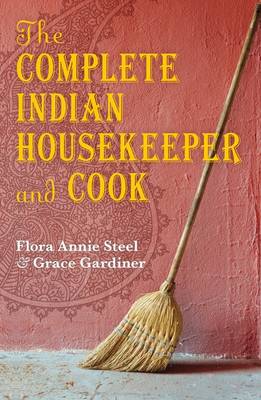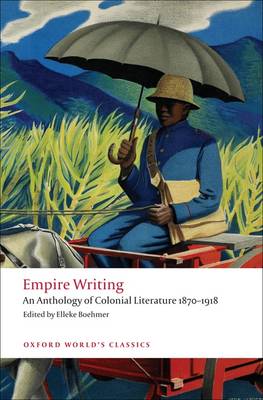By Kirsty McHugh, OUP UK
First published in 1888, The Complete Indian Housekeeper and Cook, by Flora Annie Steele and Grace Gardiner, is the Mrs Beeton of British India. It sought to provide practical advice to young memsahibs in India. Ostensibly a manual of household management, it opens a fascinating window on to the day-to-day life of the British in India. In the abridged excerpt below, Steele and Gardiner offer some handy hints on camp life for those women who were wives of Civil Service employees. Read on to find out how to make an oven for the ‘cook-room’, how to make a tent comfortable, and how to make sure that country turnips ‘lose nearly all their paint-like taste’.
First, in regard to tents.
Whether these are supplied by Government or not, it is equally necessary to make them comfortable. The ordinary single pole tent is twice as convenient if it is divided down the centre with a pole and curtains so as to screen off the beds; while, if the inner kunnât on the side used as a drawing-room is divided just at the central door and thrown back to the outer kunnât (like a bow window), the stove can be placed in the tent, and will thoroughly warm it, whilst in the daytime the bow makes a charming, light place for writing or working. All that is wanted to make it perfect, beyond  unpicking the join at the door, is a small durri to fit the bow, and a roof to match the inner fly of the tent. This is made to lace on with eyelet holes. By having two strips of kunnât with perpendicular bamboos, the two bits of verandah on either side can be turned into safe places for the khitmutgâr’s table, as by a simple arrangement of tapes and ties no dog can get in. In the same way capital bathrooms can be made on the other side, by closing the verandah in with permanent tight-fitting kunnâts on the side nearest the sitting-room, and having curtains on poles and rings at the other. How some people can go on for years and years with the makeshift purdah — hung by a string — that jams its horizontal bamboo into the sides of the tent when you desire to pass, and invariably refuses to fill up the space when you desire it to do so, is a mystery. In fact, the first axiom for camp is not to do without comfort, if it does not entail discomfort by increasing the trouble. A comfortable tent is no heavier than an uncomfortable one, and furniture suited to camp life is generally lighter than ordinary furniture. Charming folding tables of bamboo and deodar can be made for Rs. 2 each, and folding scissors or lazy-jane clothes-racks are to be bought anywhere for a rupee. Add two iron hooks to hang them over the kunnât, and you are possessed of hat or clothes pegs. A plain wooden cover for the bath, with three screw-legs to pack inside, gives you an excellent hold-all for boots, &c., and a far better washhand-stand than the usual dreadful gallows construction, which leaves you in doubt whether to put your soap in your pocket or allow it to melt in the basin…
unpicking the join at the door, is a small durri to fit the bow, and a roof to match the inner fly of the tent. This is made to lace on with eyelet holes. By having two strips of kunnât with perpendicular bamboos, the two bits of verandah on either side can be turned into safe places for the khitmutgâr’s table, as by a simple arrangement of tapes and ties no dog can get in. In the same way capital bathrooms can be made on the other side, by closing the verandah in with permanent tight-fitting kunnâts on the side nearest the sitting-room, and having curtains on poles and rings at the other. How some people can go on for years and years with the makeshift purdah — hung by a string — that jams its horizontal bamboo into the sides of the tent when you desire to pass, and invariably refuses to fill up the space when you desire it to do so, is a mystery. In fact, the first axiom for camp is not to do without comfort, if it does not entail discomfort by increasing the trouble. A comfortable tent is no heavier than an uncomfortable one, and furniture suited to camp life is generally lighter than ordinary furniture. Charming folding tables of bamboo and deodar can be made for Rs. 2 each, and folding scissors or lazy-jane clothes-racks are to be bought anywhere for a rupee. Add two iron hooks to hang them over the kunnât, and you are possessed of hat or clothes pegs. A plain wooden cover for the bath, with three screw-legs to pack inside, gives you an excellent hold-all for boots, &c., and a far better washhand-stand than the usual dreadful gallows construction, which leaves you in doubt whether to put your soap in your pocket or allow it to melt in the basin…
To begin, however, systematically. The mistress will find it convenient to have



